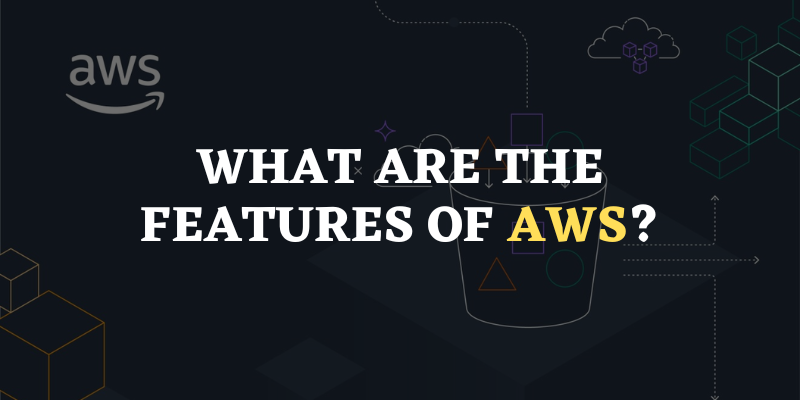
Amazon Web Services (AWS) is a complete cloud computing platform that offers a platform as a service (PaaS) as well as infrastructure as a service (IaaS). AWS services provide scalable solutions for computation, storage, databases, analytics, and other applications. If you are interested in learning AWS and its features, join the Aws Training In Pune at FITA Academy with excellent practical knowledge and placement Assistance.
Easy sign-up process:
We do not need to sign agreements to use AWS; we only need an email address and credit/debit card information. AWS also provides a free tier for one year, in which most popular services are free up to a specified limit.
Simple and Per hour billing:
Every instance or service has micro billing, so if you have an EC2 example, you will be taxed per hour, which is quite transparent; similarly, S3 buckets are charged per GB. AWS’s billing dashboard is straightforward; they provide an integrated billing dashboard with a report we can pull out as needed, such as monthly, based on services, etc.
AWS Encompasses three essential pillars of Cloud computing:
AWS has three essential pillars IaaS, PaaS, and SaaS, which are explained below.
IaaS (Infrastructure as a service)
The infrastructure of any cloud architecture is its foundation, and AWS provides fundamental computing infrastructure such as storage, servers, and networking resources and is mainly used by IT managers. The AWS service EC2 is built on the IaaS concept and allows us to set up a website or analyze data. To learn more about AWS, Enrol Aws Course In Madurai will focus on providing good training for AWS and developing in-demand cloud skills.
PaaS (Platform as a Service)
Software developers mostly use PaaS since it provides a runtime environment for developing and testing programs without worrying about infrastructure. Amazon’s elastic beanstalk is an excellent example of PaaS.
SaaS (Software as a service)
SaaS enables cloud users to use cloud-based web applications such as AWS SNS basic notification service and SES, an email service comparable to Gmail or Yahoo Mail.
Scalability and Elasticity:
In AWS, scalability is the capacity to scale up, scale out, or scale down computer resources as demand increases or declines. For this, we offer the Auto Scaling service.
Elasticity is the capacity to allocate incoming application traffic among multiple targets like IP addresses, instances, messaging services, containers, and so on. AWS provides an elastic load balancer service for this purpose. The Aws Training In Hyderabad improves your knowledge of cloud computing concepts and assists you in becoming an expert in the use of cloud services.
Flexibility:
AWS allows you to choose your operating system, programming language, database type, the location where you want to send your content, and so on, and you only spend on what you use. This will allow you to concentrate on development and business rather than learning technologies you know about, allowing you to build your infrastructure with your present talents. Java, Python, Go, JSON, Ruby, C Sharp, Node JS, and other programming languages are available.
With AWS CloudFormation, you can quickly and affordably migrate your on-premise application to the cloud. AWS OpsWorks allows you to update many resources in seconds. This lets you focus on the application’s development and growth rather than on infrastructure.
A great deal of Amazon’s services:
EC2(Elastic compute cloud)
This service provides you with bare servers/machines on which to launch and operate your applications. You can customise the machine’s capacity and processing power to meet your needs. The Aws Training In Gurgaon improves your knowledge of cloud computing concepts and assists you in becoming an expert in the use of cloud services.
VPC (Virtual Private Cloud)
AWS does not give you complete control over their cloud; instead, they grant you VPC portions. VPC allows you to construct cloud networks and then run your servers in those networks.
S3(Simple Storage Service)
S3 allows you to share and upload files by establishing S3 Buckets comparable to folders; it is primarily a file storage system rather than a block storage system. In S3, you can also host a static website.
Relational Database Service
RDS enables you to run and manage databases in the cloud. RDS has all of the major types of DBs, from SQL Server to PostgreSQL, and we can create DBs and allocate memory according to our needs, as well as make them fail-proof with the help of cross-region replication. Recently, AWS launched Aurora, which they claim to be a very high-performance DB.
AWS Lambda
It is a computation engine that does not require a server. In Lambda, you must give sufficient code to complete your work and only pay for compute time. AWS Lambda scales automatically based on workload. Python, node.JS, C sharp, Ruby, Go, and Java are all supported. Enrolling Aws Training In Ahmedabad provides the best training for DynamoDB Core Components, Naming Rules, Data Types, etc.